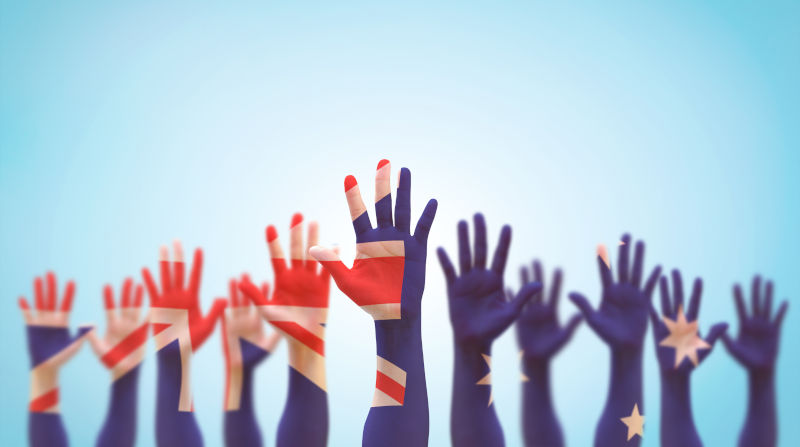Shirtfronting Australia
June 5, 2023
Australians are more used to pointing the accusing finger at other countries than having it pointed at us.
Many Australians criticise China for allegedly engaging in genocide against its Uighur population and harvesting their organs. We have for decades been expressing concern about Myanmars treatment of Rohingya and the repression of women in Iran, Saudi Arabia, and Afghanistan. We were even more shocked to learn about American transgressions at My Lai, Abu Ghraib, Guantanamo Camp X-ray, and US black sites, including the incarceration of Australians. Some of us deplore the continuing disenfranchisement of the Chargossians of Diego Garcia, and of West Irianese.
But before we throw stones at others, Australians should consider how our own record looks to them.
Australians, who top the list of foreign visitors to Bali, have figured in recent cases of violent and bizarre behaviour, and in a sequence of drug offences. Indonesia has recently responded by introducing measures to restrain loud and drunken tourists, to ensure respect for holy places, and pious hope to ban sex between unmarried people.
Human rights abuses by Australian Special Forces in Afghanistan are widely reported here and around the world. They are front of mind not only for us but for the International Criminal Court and for our American ally. At the time of release of the Brereton report, the United States warned that it may have to suspend cooperation with Australian special forces. The Australian Senate has only just learned about this.
Australia took a seat in the UN Human Rights Council in 2018, but there too our human rights reputation has been trashed. When a subcommittee visit was cancelled last year, it was neither unexpected nor undeserved, according to Australia’s Human Rights Commissioner, Lorraine Finlay. Now, Australia is about to become the first OECD nation to be placed by the UN on a non-compliance list for human rights, and could be sanctioned.
This is because Australia has failed to implement the Optional Protocol to the Convention Against Torture and Other Cruel, Inhuman or Degrading Treatment or Punishment (OPCAT). OPCAT is designed to protect the rights, health and safety of people experiencing any kind of detention, including people in prisons, youth detention centres, immigration detention, hospitals, mental health facilities, aged care facilities, and facilities for people living with disability. (Think Julian Assange in the UK).
Australian states and territories have not met OPCATs requirement to establish independent inspection and monitoring bodies for all detention facilities, and to allow regular visits from the UN subcommittee to all detention facilities. Each Australian state and territory must also establish an internal inspection and compliance body, which NSW and Queensland have not done.
Australia argues that its offshore detention centres should not fall under OPCAT. The Albanese government has allocated a further $485m to fund Nauru offshore processing this year, where only 22 refugees and asylum seekers are left (The Guardian), at a cost of more than $20m each. Meanwhile, we learn that the Morrison government paid $17.5 million for offshore processing and accommodation services to a businessman who was known to have bribed Nauru government officials to favour his phosphate mining contracts.
Australia’s treatmentof Indigenouspeople, refugees andclimate protestersis also criticised by international agencies. First Nations peoplecontinue to be over-represented in prisons; deaths in custody rose last year; and the age of criminal responsibility has not yet been raised from 12 to14 in all states and territories. New laws in some jurisdictions are aimed at climate change protesters. The Great Barrier Reef clings to its global heritage listing by a thread. Australia is among the worlds highest CO2 per capita emitters.
What better time for these reflections on international accountability for human rights and war crimes than just after the 100th birthday of Henry Kissinger, awarded the Nobel Prize for his efforts in 1972 to end war and restore peace in Vietnam, which included intensifying the bombing of Vietnamese and Cambodian civilians, and even threatening them with nuclear weapons. To some, Kissinger was/is a war criminal. For Kissinger the realist, it was no crime, but pursuit of a much greater goal: to ensure US global hegemony. As well, it kept a small, mainly rich American, coterie of capitalists and bankers in control of everything.
In 2000, with Vietnam forgotten, having seen off the Soviet Union, and survived the phony Millennium Bug scare, Americans were on top of the world: masters of the universe. History had ended, with the US as sole hegemon. President HW Bushs new world order was in place. But then his son stole an election from Al Gore, declared war on terror in 2001, and the US and much of the West have been on a downhill slide ever since.
Kissinger is yesterdays man. He still says he believes in Pax Americana, and the obligation to defend the areas of the world essential for American and democratic survival (Tunku Varadarajan, Wall Street Journal, Australian, 30 May 2023: 14). Does Australia continue to believe we can and should do that, in the Asian Century?

